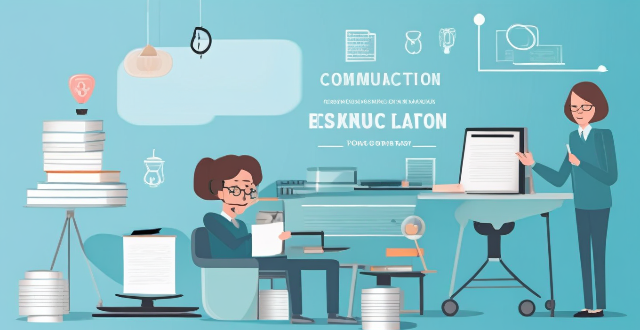Effective communication is essential for the success of any study group. To communicate better with your study group members, set clear objectives, use active listening skills, encourage open discussion, provide constructive feedback, and stay organized. By following these tips, you can work together to achieve your academic goals.

How to Effectively Communicate with Your Study Group Members
Communicating effectively is crucial for the success of any study group. Here are some tips that can help you communicate better with your study group members:
1. Set Clear Objectives
- Establish Goals: Start by setting clear objectives for your study group. This will help everyone understand what they need to achieve and stay focused on the task at hand.
- Define Roles: Assign roles and responsibilities to each member based on their strengths and weaknesses. This will ensure that everyone knows what they need to do and can contribute effectively to the group's goals.
- Create a Timeline: Develop a timeline for completing tasks, reviewing material, and meeting deadlines. This will help keep everyone on track and ensure that the group stays organized.
2. Use Active Listening Skills
- Pay Attention: When someone is speaking, give them your full attention. Avoid distractions such as checking your phone or looking around the room.
- Show Interest: Nod your head, smile, and make eye contact to show that you are engaged in the conversation.
- Ask Questions: If you don't understand something, ask questions to clarify your understanding. This shows that you are interested in learning and helps build trust within the group.
3. Encourage Open Discussion
- Create a Safe Environment: Encourage open discussion by creating an environment where everyone feels comfortable sharing their ideas and opinions.
- Respect Differences: Recognize that different people have different perspectives and experiences. Be open to hearing new ideas and respecting differences in opinion.
- Promote Collaboration: Encourage collaboration by asking questions, building on others' ideas, and offering suggestions for improvement.
4. Provide Constructive Feedback
- Be Honest: Give honest feedback about others' work, but do so in a constructive manner. Avoid being overly critical or negative.
- Focus on Solutions: Instead of just pointing out problems, offer solutions and suggestions for improvement. This will help foster a positive and productive environment.
- Be Timely: Provide feedback in a timely manner so that others can make adjustments and improvements before it's too late.
5. Stay Organized
- Take Notes: Keep track of important information, deadlines, and assignments by taking notes during meetings. This will help you stay organized and ensure that nothing falls through the cracks.
- Use Tools: Utilize tools like calendars, to-do lists, and project management software to stay organized and manage tasks more efficiently.
- Follow Up: Follow up with group members after meetings to ensure that everyone is on the same page and understands their responsibilities.
By following these tips, you can effectively communicate with your study group members and work together to achieve your academic goals. Remember that effective communication requires active listening, open discussion, constructive feedback, and organization.